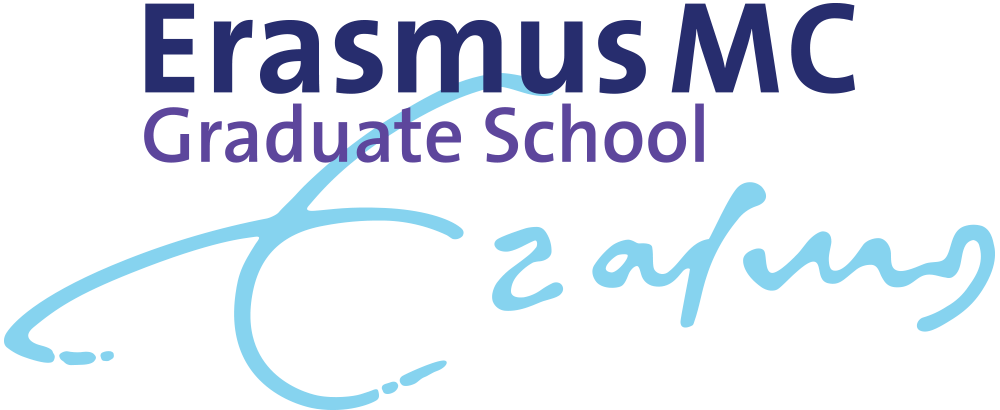Master of Science in Health Sciences (PART-TIME)
Programme highlights
EC points
70
Duration
2 years
Specialisations
- Epidemiology
- Clinical Epidemiology
- Public Health Epidemiology
- Biostatistics
- Health Decision Sciences
- Genomic & Molecular Epidemiology
Timing
Part-time
For whom?
Working health professionals
Structure
This programme is the part-time version of the Master of Health Sciences programme (70 EC points). Together with a programme coordinator, you will design a programme that is tailor-made to fit your schedule.
Research
In the research period you will be doing research either in the stimulating research environment of the Erasmus MC or at your home institute. You are supervised by leading professors and senior researchers. You will work towards a publishable research paper.
Tuition fee
Check Application & Admission > Tuition Fees
Application
How to applyApplication deadline
EU: 01 April 2025Non-EU: 01 March 2025
Downloads
Testimonial
Specialisation Epidemiology contents
Programme director
Prof. Arfan Ikram, MD PhD
Description
Epidemiology plays an integral role in the application of medical research to populations, interacting with almost every other specialism.
Epidemiology studies the incidence, causes, consequences and control of disease, as well as people, patients and populations. It is a fundamental discipline for clinical medicine and public health. It may, together with basic science and clinical research, provide tools to learn about the etiology and consequences of diseases, the possibilities for prevention and treatment and the risk profiles of individuals and populations. Using advanced methods such as statistical analyses, field research and complex laboratory techniques, epidemiologists map various elements of a disease and the ways they are related.
The objective of the epidemiology programme is to prepare candidates for a research position (e.g. a PhD project) in the area of clinical medicine or public health, or for example a more health policy oriented career. The programme comprises compulsory courses directed at study design, biostatistics, and data analysis. In addition, further specialization in specific areas of epidemiological research is needed. Extensive training in widely used statistical packages is also an important part of the curriculum. A large part of the programme is devoted to research.
Watch more specialisation video's
For more courses and detailed information about this programme please refer to the documents on our downloads page.
Specialisation Genomic & Molecular Epidemiology contents
Programme director
Fernando Rivadeneira, MD, PhD
Description
The major thrust of research in genomic & molecular epidemiology in the next ten years will be the identification of predisposing genes in complex diseases and the environmental factors. This may ultimately lead to a more targeted surveillance and improved clinical care.
Genomic & molecular epidemiology focuses on the uses of genomic, molecular and epidemiological research in identifying the possible familial and hereditary factors underlying the origins and manifestations of human disease. The cause of most chronic diseases -including cancer, coronary artery disease, diabetes, hypertension, and psychiatric disorders- may lie in the interactions between environmental factors and genetic susceptibility. Genomic & molecular epidemiology helps optimize etiological studies through an integrated approach that draws on the methodologies of epidemiology, biostatistics, genetics and molecular biology.
The objective of the genomic & molecular epidemiology programme is to prepare candidates for epidemiological research in the areas of genetic determinants of diseases and of genetic risk assessment and seeks to train candidates in these specific fields or to prepare them for an executive/advisory positions in the area of public health, or health-policy. The genomic & molecular epidemiology programme is a mix of general subjects, such as study design and statistical data-analysis, and subjects tailored with specific genomic & molecular epidemiology research and analytical methods.
For more courses and detailed information about this programme please refer to the documents on our downloads page.
Specialisation Clinical Epidemiology contents
Programme director
Prof. Myriam G.M. Hunink, MD PhD
Description
Clinical Epidemiology is empirical and patient oriented and involves diagnostic, prognostic, prevention and intervention studies. Within Clinical Epidemiology a quantitative approach is used to address medical problems with the objective of using the best-available evidence to guide patient management. The ultimate goal is to improve patient outcomes. Important aspects considered in the specialization Clinical Epidemiology include appraisal of bias in published clinical studies, the design of clinical studies, analysis of data from clinical studies, diagnostic and prognostic prediction, evaluating preventive and therapeutic interventions, and the translation of research findings to clinical practice. Results from clinical epidemiological research are used in patient management and health policy decisions.
Watch more specialisation video's
For more courses and detailed information about this programme please refer to the documents on our downloads page.
Specialisation Health Decision Sciences contents
Programme director
Prof. Myriam G.M. Hunink, MD PhD
Description
Within the specialization Health Decision Sciences a quantitative approach is used to address medical problems with the objective of making decisions in health care based on evidence and values. The level of decision-making considered ranges from clinical decisions to health policy decisions. We consider individualized patient decisions, decisions for groups of patients, decisions that are incorporated into clinical guidelines, policy decisions at a regional or national level, and decisions concerning the optimal use of health research funding. Topics studied in Health Decision Sciences include decision modelling, simulation modelling, diagnostic and prognostic prediction, expected value, value-based health care, comparative effectiveness, cost-effectiveness, health technology assessment, and value of information.
For more courses and detailed information about this programme please refer to the documents on our downloads page.
Specialisation Biostatistics contents
Programme director
Prof. Dimitris Rizopoulos, PhD
Description
In recent years data that are collected in clinical research and public health have increased in volume and complexity. This enhanced even further by the scientific revolution in molecular biology and genetics, and its impact on health and the environment. In this context it is of paramount importance that data are analyzed with sound statistical techniques that respect their nature and adequately answer the scientific questions of interest. This has lead in an increased need for well-trained biostatisticians capable of handling the data analysis challenges of the modern era.
The aim of the NIHES Specialization in Biostatistics is to keep abreast of such evolutions and equip the future generation of researchers with modern and essential data science tools. This specialization will combine a solid study of modern statistical methodology with up-to-date information on topics such as study design, clinical trials, public health, longitudinal data analysis, survival analysis, causal inference, and tools for reproducible research. The courses are taught by an international faculty of world renowned statisticians and epidemiologists from the Netherlands, Belgium and the United States. These include among others, past and current Editors of flagship biostatistics journals, and past presidents of major international biostatistics societies.
The specialization is aimed at ambitious students with a relevant Bachelor degree with a strong motivation in data science for biomedical applications.
Watch more specialisation video's
For more courses and detailed information about this programme please refer to the documents on our downloads page.
Specialisation Public Health Epidemiology contents
Programme director
Prof. Alex Burdorf, Ir. PhD
Description
Public health epidemiology is the art and science of preventing disease, prolonging life and promoting health through the organized efforts of society.
Whereas clinicians and general practitioners provide care for individuals, public health interventions are directed at whole populations. Many improvements have resulted from successful public health initiatives: vaccination and other forms of infectious disease control, safer working environments, preventive mother and childcare, safer and healthier foods, family planning, improved traffic safety, and tobacco control. To achieve or preserve access to effective health care services in society, there is a considerable need for public health expertise.
The objective of the public health epidemiology programme is to prepare public health professionals to draw upon the knowledge and skills from a variety of disciplines in order to define, evaluate, and resolve public health problems. Participants will be prepared for research and for positions at staff and executive levels. Topics included in the programme will be health promotion and health intervention, international health, health policy and management, and occupational and environmental health.
Watch more specialisation video's
For more courses and detailed information about this programme please refer to the documents on our downloads page.
Detailed information about this programme:
Description
The part-time master programme is ideal for the working health professional, who wishes to refine their knowledge of methods in either clinical or public health research. The programme can be fully customized to fulfill your professional and personal aspirations and fit your busy schedule.
Majors within the programme include clinical epidemiology, epidemiology, biostatistics, public health epidemiology, medical psychology, genomic & molecular epidemiology, and health decision sciences & technology assessment. After completion, candidates will have the knowledge, understanding and skills to propose state-of-the-art studies, write excellent study protocols, perform the research, analyze the data using modern statistical techniques, make defensible causal inferences, come to justified conclusions, and write outstanding research papers. Depending on the choice of major, the candidate will focus on for example observational population studies, randomized controlled clinical trials, public health interventions, registry data or modeling studies.
This programme is NVAO accredited. For more information, visit the Netherlands-Flemish Accreditation Organisation (NVAO) at www.nvao.net.
This programme only awards Cum Laude to students who started their master before the study year 2021-2022. As of 2021-2022 a revised curriculum was introduced for this programme without the option to award cum laude.
Objectives
- The student has knowledge about quantitative methods and the ability to apply this knowledge in preparing, performing, analyzing and interpreting research.
- The student understands core concepts of etiologic (causality), prognostic, diagnostic, prevention, and intervention research.
- The student has knowledge of regulations and ethical rules applicable to the fields of clinical and public health research, and is able to apply this knowledge.
- The student is able to translate a problem in the area of (clinical) epidemiology, public health, health care and/or clinical practice into a scientific research question.
- The student is able to translate a scientific research question in the area of (clinical) epidemiology, public health, health care and/or clinical practice into a research protocol and/or proposal, choosing appropriate methodology for the specific setting and (patient) population.
- The student is able to conduct a systematic literature review of a clinical or public health issue, and is able to critically assess the literature.
- The student is able to write a draft manuscript, based on a subject in the area of (clinical) epidemiology, public health, health care and/or clinical practice.
- The student is able to present the research findings in an engaging way for a broad academic audience.
- The student is able to critically review and assess the relevance of their own scientific results.
- The student is able to collaborate with (international) co-investigators in order to set up and conduct a research project, to collect data, and to analyse these data to draw conclusions.
- The student is able to respond to criticism in a constructive and productive manner.
- The student engages in personal and professional development.
Career opportunities
The degree prepares you for a career in international research or in executive or advisory positions in public health, clinical medicine, pharmaceutical research, or health policy.
Are you eligible?
You should fit each of the following criteria:
- You have a relevant Master’s degree from a discipline in or related to clinical medicine or public health (medical doctor, health sciences, nutrition, biology, pharmacy, dentistry, veterinary medicine, environmental sciences, social sciences, economics, psychology, etc.).
- You have experience with performing research and have interest in performing quantitative research.
- You have already (co-)authored a few scientific publications.
- You have a good working command of the English language, both oral and written. For more information, please click here.
 Reduction on fees
Reduction on fees
PLEASE NOTE: This does not apply to the fee of the research master programmes (120 EC points)
No fees are charged for Erasmus MC PhD candidates, provided they have an account in Hora Finita, the Erasmus University PhD registration system. When submitting the application, you can state that someone else pays your tuition fee.
In case of cancellation or no show, the cancellation policy applies based on the full course fee.
25% reduction for all (international) PhD candidates without formal appointment at Erasmus MC
Upon receipt of your application you will receive a request to upload proof of enrollment as a PhD candidate.


